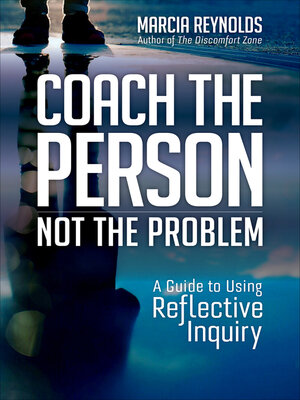
Sign up to save your library
With an OverDrive account, you can save your favorite libraries for at-a-glance information about availability. Find out more about OverDrive accounts.
Find this title in Libby, the library reading app by OverDrive.



Search for a digital library with this title
Title found at these libraries:
| Library Name | Distance |
|---|---|
| Loading... |
Master one of coaching’s toughest skills—using reflective inquiry to help clients see themselves and their world through new eyes: “An essential resource.” —Deb Giffen, Wharton Executive Education
Coaches rely far too much on asking open-ended questions, says Marcia Reynolds, a founding member of the coaching movement. But questions only seek answers—inquiry provides insight. When, instead of just questions, clients hear their thoughts, opinions, and beliefs spoken by someone else, it prompts them to critically consider how their thinking affects their goals. In this book, Reynolds cites the latest brain science to show why reflective inquiry works—and provides techniques, tips, and structures for creating breakthrough conversations. Freeing coaches from the cult of asking the magical question, she offers five essential practices of reflective inquiry:
Focus on the person, not the problem Summarize what is heard and expressed Identify underlying beliefs and assumptions Unwrap the desired outcome Articulate insights and commitments
Using these practices, combined with a respectful and caring presence, helps create a space where clients feel safe, seen, and valued for who they are. Coaches become change agents who actively recharge the human spirit. And clients naturally dive deeper and develop personalized solutions that may surprise even the coach.
Coaches rely far too much on asking open-ended questions, says Marcia Reynolds, a founding member of the coaching movement. But questions only seek answers—inquiry provides insight. When, instead of just questions, clients hear their thoughts, opinions, and beliefs spoken by someone else, it prompts them to critically consider how their thinking affects their goals. In this book, Reynolds cites the latest brain science to show why reflective inquiry works—and provides techniques, tips, and structures for creating breakthrough conversations. Freeing coaches from the cult of asking the magical question, she offers five essential practices of reflective inquiry:
Using these practices, combined with a respectful and caring presence, helps create a space where clients feel safe, seen, and valued for who they are. Coaches become change agents who actively recharge the human spirit. And clients naturally dive deeper and develop personalized solutions that may surprise even the coach.







